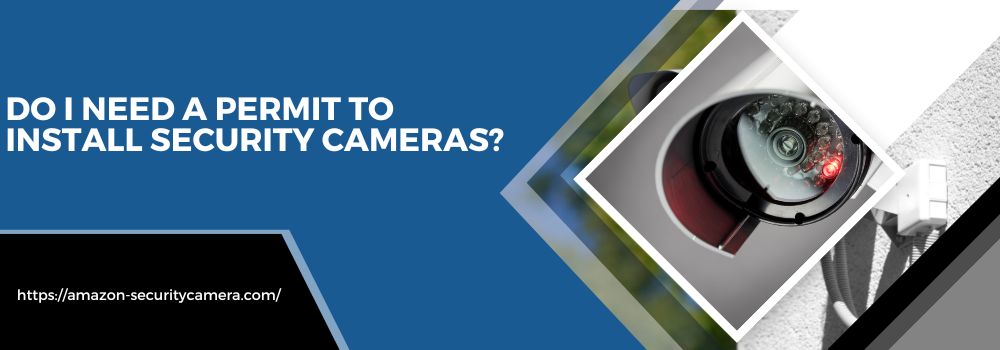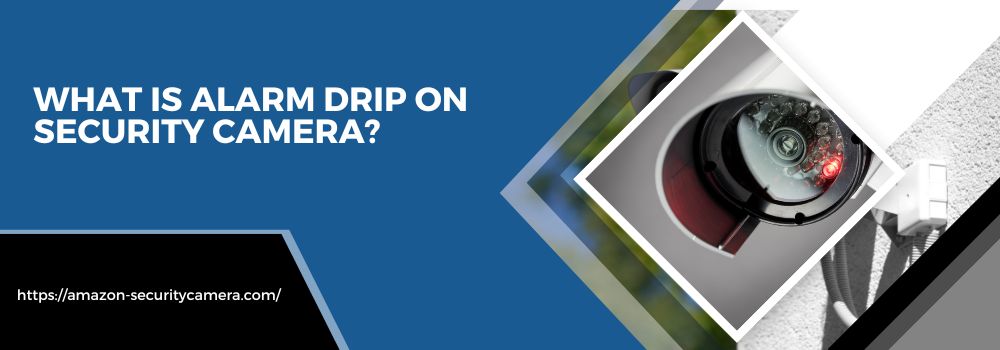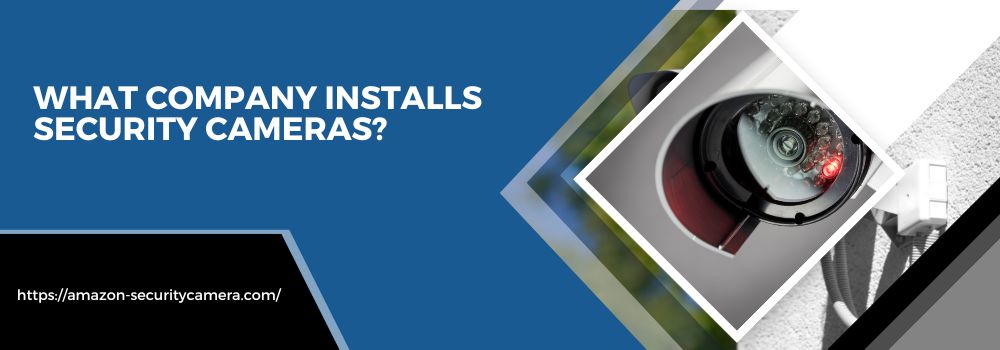The question of whether you require a permit to install security cameras is one that might concern both homeowners and business owners alike. Do I need a permit to install security cameras? The need for a permit is not universal as it often depends on various factors such as your location and the type of camera system you intend to install.
In many jurisdictions, the installation of security cameras on your own property, particularly when they’re meant to monitor your premises alone, does not necessarily require a permit. However, placing cameras in public-facing areas may be subject to different rules and regulations. Understanding these requirements is essential to ensure you are not infringing on privacy laws and local regulations in your effort to enhance security.
Do I need a permit to install security cameras?
Read an article about Do I need a permit to install security cameras?
Read another article about Light bulb security camera | Best Camera Ever
Table of Contents
Understanding Local Laws and Regulations
Before installing any security cameras, it is crucial to understand the laws and regulations that govern your area regarding surveillance. Different states and countries have varying rules on what can be recorded, where and how long footage may be stored, who has access to it, and how it may be used.
For example, in some places, you must get consent from individuals before recording them on your property, while in others, you may only record areas where there is no expectation of privacy. Violating these laws can result in penalties or legal action, so it is essential to do your research beforehand.
Types of Cameras That May Require Permits
While most jurisdictions do not require permits for residential security cameras meant for personal use, some types of cameras may require special permits. These include exterior cameras that capture footage outside your property, such as those overlooking public areas or streets. Additionally, cameras with audio recording capabilities may require permits due to privacy laws.
Benefits of Obtaining a Permit
Even if your local laws do not expressly require it, obtaining a permit for your security camera installation can bring several benefits. It can provide you with peace of mind, knowing that you are following all regulations and not putting yourself at risk of legal action. It may also help in the event of an incident where footage from your cameras is needed as evidence.
Moreover, having a permit may make it easier to communicate with law enforcement if necessary, as they will know that your cameras are installed legally and can be used as a resource. It also shows that you are a responsible and conscientious member of the community.
Steps to Obtain a Camera Installation Permit
Obtaining a permit for camera installation can often seem daunting. However, by following a series of steps, the process can be made simpler and more straightforward. These steps may include:
- Researching the laws and regulations in your specific jurisdiction
- Determine if a permit is required for your planned camera installation
- Filling out any necessary paperwork or applications
- Paying any associated fees or costs
- Waiting for approval from local authorities
By taking the time to go through these steps, you can ensure that your camera installation is compliant with all necessary regulations and laws, giving you peace of mind and potentially avoiding any legal issues in the future.
Choosing the Right Security Camera
Different situations and locations require different types of security cameras. Understanding your needs and comparing them with the options available in the market is crucial before making a selection. Consider the type of property, desired coverage area, storage capabilities, and any additional features such as night vision or motion detection.
Maintaining a Record of Footage
Proper storage and cataloging of footage can be instrumental when it comes to using it as evidence or for any other purpose. It’s important to understand best practices in this regard. Additionally, it can be helpful to have a plan for how long you will keep the footage and when it should be deleted.
Privacy Concerns and Ethical Aspects
Installing security cameras often brings up issues related to privacy and ethics. It’s important to keep these considerations in mind while installing and operating security cameras. This includes obtaining consent from individuals who may be captured on camera.
Consulting Local Regulations
Different cities and states may have varying regulations when it comes to security cameras. It’s important to consult with local authorities and understand any specific requirements or restrictions before installing a security camera system.
- Hiring a Professional Installer
Installing a security camera system can be complex and requires technical expertise. It’s recommended to hire a professional installer who can ensure the proper placement and functioning of the cameras.
- Application Process for a Camera Installation Permit
The exact process for obtaining a camera installation permit may vary depending on the location. However, most municipalities will require you to fill out an application and provide details such as the type of camera, its intended use, and any necessary documentation.
- Security Camera Laws by State
Different states have different laws when it comes to security cameras. It’s essential to familiarize yourself with these laws before setting up a security system in your home or business. Some states may have restrictions on where cameras can be placed or how footage can be used.
- Maintaining and Monitoring the System
Once a security camera system is installed, it’s important to regularly maintain and monitor it. This includes checking for any malfunctions, replacing batteries if necessary, and keeping track of footage storage. Regular monitoring can also help identify any potential security concerns.
- Renewing Your Security Camera Permit
In many cases, security camera permits need to be renewed periodically. It’s important to keep track of the expiration date and follow the necessary steps to renew the permit in a timely manner.
- Ensuring Proper Maintenance
Security cameras require regular maintenance to ensure they continue functioning properly. This includes routine checks for any damages or malfunctions, cleaning of lenses, and updating software as
Permits for security cameras often have an expiration date. Understanding when and how to renew your permit can prevent any legal complications.
Additionally, regularly maintaining your security camera system can not only ensure its efficiency but also prevent any potential legal issues that may arise from malfunctioning or improperly placed cameras. As technology advances and laws change, it’s important to stay updated on the regulations surrounding security cameras in your area. This can help ensure you are following all necessary guidelines and avoiding any legal consequences.
Conclusion
In conclusion, obtaining a permit for security cameras is an important step to ensure the safety and security of your business. It’s crucial to research and understand the regulations in your area before installing a system and to regularly maintain and monitor it once it’s installed.
By following these guidelines, you can protect not only your property but also the privacy of those around you. Stay informed and up-to-date to ensure your security camera system is operating effectively and within the bounds of the law. So, it’s important to stay informed and regularly check for any necessary updates or changes in regulations to maintain a safe and secure environment for yourself, your business, and those around you.
FAQ
Q#1: Do I need a permit for security cameras on my business property?
A: It depends on the regulations in your area. Some places may require a permit for all security cameras, while others may only require permits for certain types or locations of cameras. It’s important to research and understand the laws and regulations in your specific location.
Q#2: How often do I need to maintain and monitor my security camera system?
A: It’s recommended to regularly check and maintain your system, as well as review footage, at least once a month. This can help ensure the cameras are functioning properly and any issues can be addressed promptly.
Q#3: Are there any laws or regulations that I should be aware of when it comes to security cameras?
A: Yes, there may be privacy laws or regulations in your area that dictate where and how security cameras can be installed. It’s important to research and understand these laws to avoid any potential legal issues.
Q#4: Can I use my security camera footage for any purpose?
A: No, the footage should only be used for security purposes and not shared or used for any other purposes without the consent of those being recorded.
Q#5: What should I do if my security camera system is not functioning properly?
A: If you notice any issues with your system, such as blurry footage or cameras not working, it’s important to address them immediately. This may involve contacting the manufacturer for troubleshooting or hiring a professional technician for repairs.



